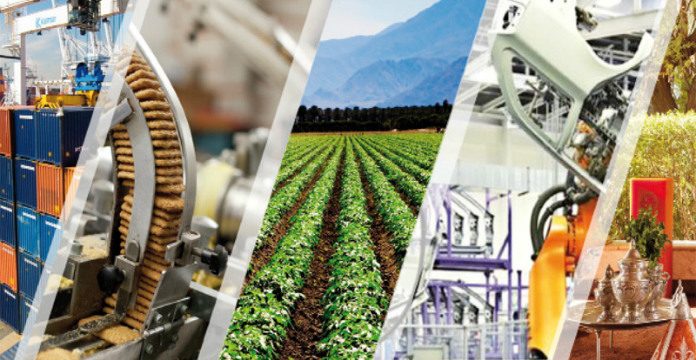The North Africa Post
The International monetary fund said Morocco could post a growth rate of 4.5% in 2024 from 3% in 2018 if it continues on path of reform and inclusive growth.
“Morocco’s medium-term prospects remain favorable, with growth expected to reach 4.5 percent by 2024” the IMF said in a report following Article IV consultations.
The North African country however remains prone to fluctuations of international oil prices and growth in key partner markets, notably the EU.
But low oil prices and greater integration in the Maghreb could give the Moroccan economy a push towards greater resilience.
Fiscal consolidation
The IMF commended Morocco’s improved fiscal management and the progress towards fiscal consolidation with the budget deficit standing at 3.7% in 2018. In this respect, IMF directors authorities to preserve debt sustainability, while safeguarding priority investment and social spending in the medium term.
The international financial institution welcomed the ongoing control of public wage spending and the outcome of the May 2019 national tax conference, which “will inform on a comprehensive tax reform targeted at achieving greater equity and simplicity in the tax system.”
However, the IMF stressed the need to accelerate reforms to bring the fiscal deficit to about 3 percent of GDP to meet the medium-term debt-to-GDP objective.
Flexible exchange rate
The IMF welcomed the beginning of the transition to a more flexible exchange rate launched in January 2018 as “successful” calling on Morocco to take the next step in the gradual transition.
“Current conditions remain favorable for a continuation of this reform for preventive purposes, as it will help the economy absorb potential external shocks and preserve its external competitiveness,” it said.
A more flexible exchange rate “will help preserve reserve buffers and competitiveness, as the economy will be better positioned to absorb external shocks,” the IMF said.
Inclusive growth
The IMF noted in its report that the potential impact of global uncertainty and risks on the Moroccan economy requires continued commitment to sustain sound policies in order to reach higher and more inclusive growth.
It stressed the importance of sustaining the pace of structural reforms to move toward a more private-sector-led and inclusive growth model while reducing inequalities and protecting the most vulnerable.
While acknowledging the “significant achievements” that have been made in strengthening the business environment and governance and reducing poverty, the IMF urged Morocco to take action to improve quality of education, efficiency of the labor market and gender equality.
Unemployment declined slightly to 9.8 percent in 2018 (from 10.2 percent in 2017) but remains particularly high among youth and graduates (26 percent and 17.1 percent, respectively), the IMF said.
Sound and resilient banking sector
The Moroccan banking sector is “sound and resilient,” said the IMF, stressing the need to remain vigilant given its increasing complexity and cross-border expansion.
The central bank law and the shift to a more risk-based supervisory framework will help further improve financial sector soundness, said the IMF.
It also welcomed the recent adoption of a comprehensive financial inclusion strategy, which will ensure that the financing needs of underserved groups and small and medium-sized enterprises are better addressed.
POSTED BY NORTH AFRICA POST
North Africa Post’s news desk is composed of journalists and editors, who are constantly working to provide new and accurate stories to NAP readers.







